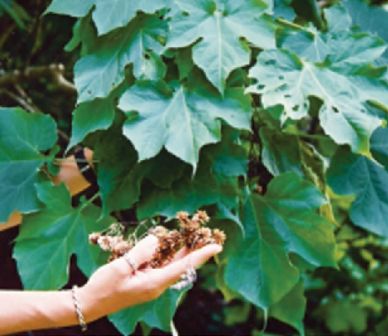Due to the Brookfield Show, the McKay Brook working bee scheduled for Sunday 19 May has been cancelled.
The next working bee will be held on Saturday 25 May during the afternoon.
For more info, please contact Bryan Hacker on 3374 1468.

by mccgadmin
Due to the Brookfield Show, the McKay Brook working bee scheduled for Sunday 19 May has been cancelled.
The next working bee will be held on Saturday 25 May during the afternoon.
For more info, please contact Bryan Hacker on 3374 1468.
by mccgadmin
Location: to be announced after booking
Type: Event
Organiser: Cubberla Witton Catchment Network
Contact: Lyn Cole – Phone 07 3378 1465 – Mob 0427 599 890
Three connected Land for Wildlife properties provide ideal habitat not only but especially for many of our wonderful local bird species. For privacy reason we will provide location details after booking and closer to the date. For more info, download the flyer: {module_literature,i,198983}
by mccgadmin
… to spot a Rose Robin!
These beautiful little birds are currently migrating up from the southern states to escape the cold weather.
Jim Butler tell us about his first encounter for the year in the latest issue of Feather Fascination.
Open Feather Fascination May 2019 to learn more!
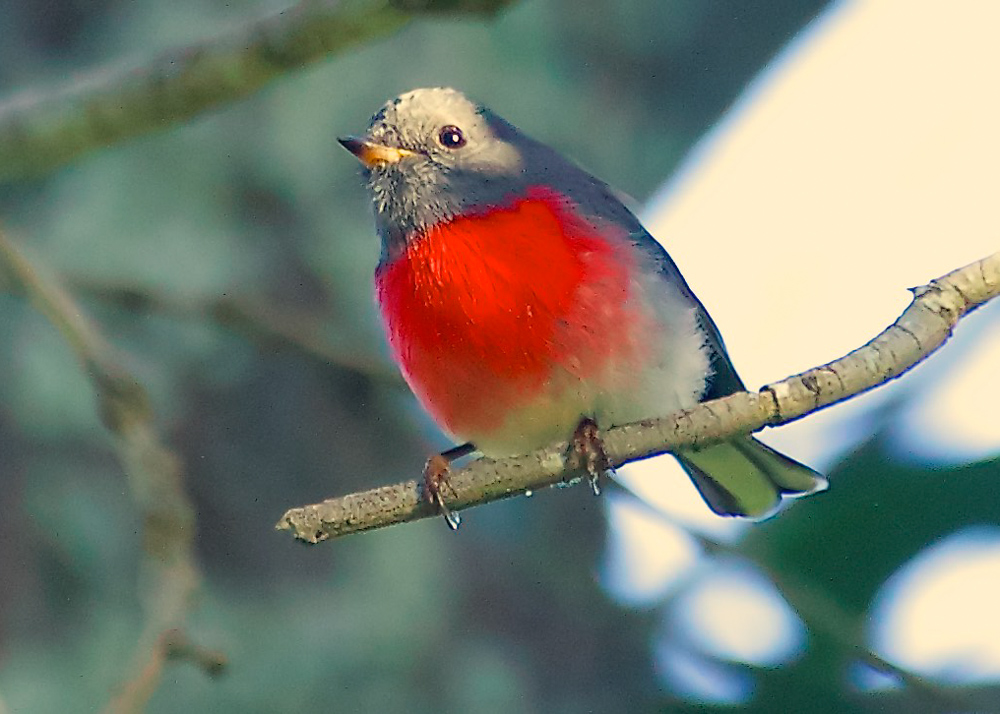
© Ed Frazer
by mccgadmin
Our colleagues at the Cubberla-Witton Catchments Network (CWCN) are running a series of bird walks. Everyone is welcome!
The first will be held on Saturday 25 May, starting at 7am and finishing at 9.30am at Fig Tree Pocket.
The walk will traverse three connected Land for Wildlife properties which provide ideal habitat not only but especially for many of our wonderful local bird species. Every walk creates excitement when an abundance of avian fauna is sighted and when we observe the rehabilitation progress across the sites.
Please be aware the terrain is uneven and provides a certain amount of challenges.
For privacy reasons the location of the walk will be advised after you’ve booked a place.
For more information please phone Lyn Cole on 07 3378 1465 – Mob 0427 599 890. You can also check the flyer for details about this and other CWCN bird walks: {module_literature,i,198983}

by mccgadmin
Location: CWCN Centre, 47 Hepworth St, Chapel Hill (UBD 178 A11)
Type: Workshop
Organiser: Cubberla Witton Catchment Network
Contact: Jutta – 0407 583 441 or email to [email protected]
This presentation explores the world of small mammal species found locally. Martin Fingland/Geckoes Wildlife will again enthral his audience with live animals and the sharing of his love for and knowledge of our wonderful native fauna.
by mccgadmin
Our recent stall at the Kenmore Village drew much attention from shoppers.
The whole display was aimed at people who care about our local environment, including nurturing their own bit of land.
We highlighted some of the benefits of joining the MCCG, including:
A resounding thank you to our PR Officer Dale Borgelt, the many volunteers who helped and to everyone who stopped for a chat! Also to Kenmore Village for their hospitallity.
Here’s some photos taken over the 2 days:
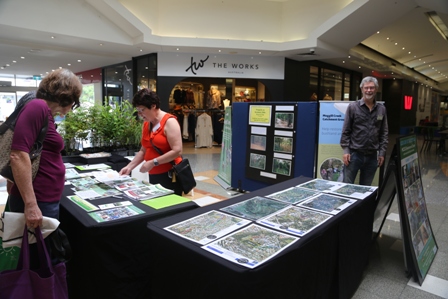
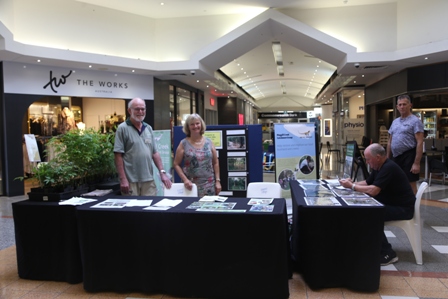
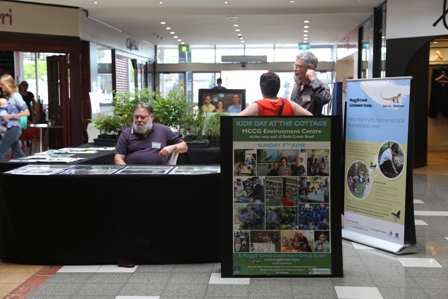
by mccgadmin
The Cubberla-Witton Catchments Network (CWCN) is holding a workshop on Saturday 18 May featuring “Small Native Mammals“.
Small mammals, generally described as ‘small, brown and furry’, are often quite difficult to tell apart.
This presentation explores the world of small mammal species found locally. You’ll get to meet a potoroo, a dunnart and various other poorly known and seldom seen marsupials and learn the techniques for identifying animals which are often only seen at night in torch light.
Martin Fingland/Geckoes Wildlife will again enthral his audience with live animals and the sharing of his love for and knowledge of our wonderful native fauna. Find out more in the attached flyer.
The workshop will run from 9am until 12.30 on Saturday 18 May at the CWCN Centre, 47 Hepworth St, Chapel Hill (UBD 178 A11).
This is the eighth workshop in a current series of ten. Registrations are essential. Our workshops tend to be very popular, and we don’t want you to miss out.
CWCN workshops are free. Preference will be given to members of catchment and bushcare groups, Land for Wildlife participants and our local educators. A cuppa is available on arrival and a morning tea will be served.
If you have questions or would like to receive more information, kindly ring Jutta on 0407 583 441 or email [email protected].
A registration form can be found in the flyer. Kindly email your form to [email protected] or post to 47 Hepworth Street, Chapel Hill 4069.
Download the flyer and registration form here: {module_literature,i,198766}

by mccgadmin
Cody Hochen is a Wildlife Conservation Partnerships Officer with Brisbane City Council.
Earlier in the year we approached Cody for information about the Richmond birdwing butterfly. In spite of his hectic schedule Cody took time out to write the following article for our newsletter.
Paul Wright also allowed us to publish his stunning photo of a male Richmond birdwing.
We extend our thanks to both Cody and Paul for their generosity.
… and we present the following article for your enjoyment!
Bringing back the Richmond Birdwing Butterfly to Brisbane
Author: Cody Hochen
The plight and recovery of the Richmond Birdwing Butterfly is well known amongst Wildlife Conservation Partnerships Program (WCPP) and Moggill Creek Catchment Group (MCCG) members.
From being a common sight in the streets of Brisbane to becoming locally extinct in just over 100 years, the Richmond Birdwing Butterfly has become a flagship species for recovery in south-east Queensland.
Most MCCG members would know someone who has been involved in some capacity, most notably, Dr Don Sands and Dale Borgelt who have been there from the beginning.
Dr Sands has taught me a lot and has been the driving force behind the recovery and mass planting of Pararistolochia praevenosa (Richmond Birdwing Butterfly Vine) throughout its range. These plantings have led to a marked recovery of existing populations on the southern Sunshine Coast and the Gold Coast and its hinterland ranges. Despite similar plantings in Brisbane, Richmond Birdwing Butterflies are yet to recover.
To build on the 30 odd years of work from many enthusiasts, WCPP started a project called ‘Bringing back the Richmond Birdwing Butterfly to Brisbane’ in March of 2017. With over 50% of bushland in Brisbane on private properties, we are in the ideal position to work with some of our 700 WCPP properties throughout Brisbane to help achieve our goal.
With the help of WCPP members, Richmond Birdwing Conservation Network (RBCN), MCCG, Habitat Brisbane Groups and Dr Sands our first goal was to find what vines had been planted and ground truth them.
Over 6 months we located 1100 Pararistolochia praevenosa on private and public land, mostly in the western suburbs of Brisbane. It was interesting to find them spread in a corridor throughout the entire western suburbs all the way from Chelmer to the Gold Creek Reservoir.
Finding these vines allowed us to create a database and in-turn create a mapping platform in Atlas of Living Australia of existing vines. This map also allowed us to identify gaps in the corridor and find suitable properties with the right habitat type in the area to help fill the gap.
Our aim is to have a core site every 2 – 3 kilometres within this corridor.
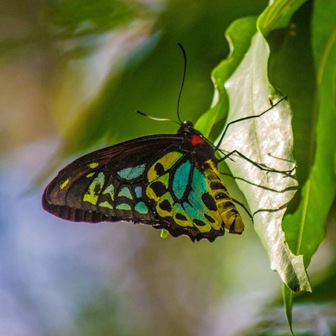
© Paul Wright
In the past small populations in Brisbane have relied on one or two isolated sites to survive. This has resulted in “in-breeding depressions” which have led to local extinction. Having vines spread throughout a corridor would allow female butterflies to travel throughout Brisbane without having to rely solely on laying their eggs on one isolated food source to survive.
So far, adding to the vines found, we have planted a further 330 vines on WCPP properties. These have been either to bulk up smaller patches of existing vines or create a new ‘core site’ in a gap in the corridor. Being a specialised vine that likes constant moisture and small doses of sun, it has been a difficult task finding appropriate sites.
After plenty of research and working with property owners to plant the vine we have bought the number of vines to 1430 spread across 52 WCPP properties, 7 Habitat Brisbane sites and 1 Brisbane City Council Reserve in Brisbane.
Our hope is to join up with current and future plantings in other councils both north and south of Brisbane. Discussions are under way to create a similar corridor from Samford, north to existing populations of the butterfly west of Caboolture and also throughout the Logan Council, south to an isolated population in Ormeau.
Like Brisbane, these plantings are to boost numbers as well as add to natural occurring populations and help existing populations of the butterfly move from isolated areas and spread throughout South-east Queensland.
As well as fragmentation and inbreeding, another threat to Richmond Birdwing Butterflies is the introduced exotic vine Dutchman’s Pipe (Aristolochia elegans).
This close relative to Pararistolochia praevenosa, Dutchman’s pipe is deadly to Richmond Birdwing Butterflies, tricking females to lay eggs on them and killing the young larvae. Unfortunately, Dutchman’s pipe is prevalent throughout the western suburbs of Brisbane and grows in similar rainforest/riparian habitat to the Birdwing Vine.
Collecting information on the sites on which Dutchman’s pipe occurs and working with WCPP members to control this invasive vine has been a part of the project.
After a long dry spell, we are waiting for more rain to plant another 100 vines in the western suburbs and to the north and south of Brisbane to help fill in the gaps.
We hope to continue to plant 100 vines a year as well as work with WCPP members to maintain their existing vines and tackle the ghastly Dutchman’s pipe. Maintenance involves fertilising, initial watering and continual watering during dry spells.
We are privileged to be in a position to help build on the 30 years of the recovery of the Richmond Birdwing butterfly in Brisbane. It is positive to be working to a plan and we feel confident that this stunning butterfly will once again call Brisbane home in the near future.
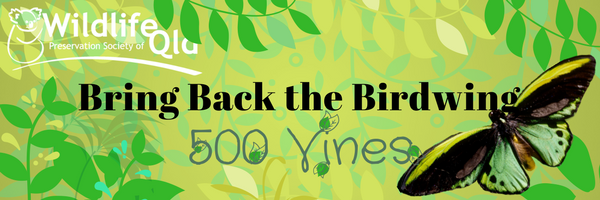
For more information about butterflies in our catchment, please click here.
by mccgadmin
There will be a Native Plants Market this Saturday 11 May at Grovely TAFE, via Woking Street Grovely. The market will run from 9am till 3pm and is hosted by Native Plants Queensland.
So come and select wonderful Australian native plants for all situations, especially waterwise ones or pond, butterfly food and bush tucker plants!
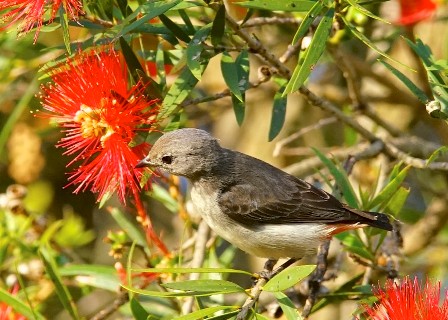 Mistletoebird attracted to bottlebrush –© Ed Frazer
Mistletoebird attracted to bottlebrush –© Ed Frazer
by mccgadmin
These days we often describe things as “EVENTS.”
Rain events, storm events, flood events – it’s the language of our times.
Well, here’s yet another calamitous event to be aware of: The ANZAC TREE DAISY EVENT ….
Each year around Anzac Day, this exotic and invasive weed explodes into a mass of flowers.
It’s about to flower RIGHT NOW.
Anzac Tree Daisy (Montanoa hibiscifolia) is a native of Central America. Introduced as a garden plant, today it presents a clear risk to a substantial proportion of our remnant forests.
It has been identified in at least 20 properties locally and seems to be spreading rapidly.
